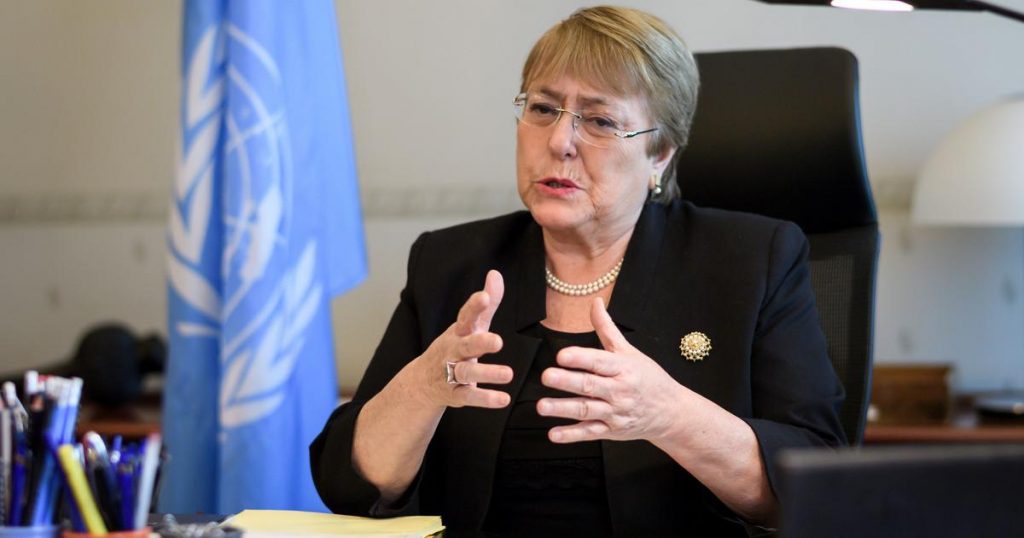The Citizenship (Amendment) Act, passed by Parliament and signed into law by President, is turning out to be a serious headache to the BJP-led government at the Centre. With the UN Human Rights chief taking the rare step of moving the Supreme Court, its outcome cannot be ignored by the Centre while the government is already fighting fire on several other fronts.
The filing of an intervention application in the Supreme Court by the UN High Commissioner for Human Rights, Michelle Bachelet, came after she openly expressed her reservations against the CAA. Notably, UN Secretary General Antonio Guterres had also gone on record to state that the two new legislations would have the potential to turn sections of Indian Moslems into ‘stateless citizens’. Although the international body sees only Moslems as possible prey for this law, in reality this law will affect Hindoos too. The poor and uneducated, whether Moslem or Hindoo, will find it extremely difficult to produce documents to prove citizenship. Especially the tribal and lower caste Indian will be the sufferer.
The response from top functionaries of the UN to a new law passed by Indian Parliament is unusual; and at the same time, this must be accorded the seriousness it deserves. The External Affairs Ministry has said it viewed this as interference in the internal affairs of the country. In a way, all UN interventions in nation-specific matters are of a similar nature, and cannot be termed as ‘interference’. The UN is duty-bound to intervene in any humanitarian situation it deems fit and sees as unacceptable before international law. The response from the Supreme Court will be watched in India and beyond with special interest and curiosity. This will also decide the fate of India in future international roles.
The CAA is already proving to be a headache in other ways too for the Modi government. The protests by incensed Moslems with support from activist groups, spread over the past few weeks, did give the nation terrible press overseas. After initial bouts of violence, it was progressing in a peaceful manner. The entry of pro-CAA protesters at the behest of some BJP leaders in Delhi, after the party’s defeat in the Assembly polls in the capital, changed the scenario to dangerous levels. Nearly 50 people have been killed in the riots, and large numbers of people were injured, or have lost their homes, and there allegedly were sexual assaults on some of the women in the affected localities. The police force failed to ensure peace in the capital, and the Opposition took the government to task for this as the Parliament re-opened its budget session this week.
At another end, the Centre will also have to tackle a curious situation in West Bengal and some other states. Chief minister Mamata Banerjee has made it clear that all Bangladeshi nationals in the state will be treated as Indian citizens. This was her response to an assertion by Home Minister Amit Shah in West Bengal that the CAA and NRC will be implemented in the state, come what may. States like Kerala and Punjab, where the Left and the Congress are holding fort, have also said they would not implement the CAA and NRC. Both these states, notably, have Bangladeshi migrants as labourers.
A nation having a citizenship registry is a normal process; something which India with its huge population never attempted earlier. The sooner this is done, it might be better for the nation. At the same time, the discriminatory nature of the clauses provided in the new law put Moslems on the alert. It may also be true that some political leaders have added to the fear of Moslems that all those who do not have valid domicile records will be declared stateless citizens, put in detention camps and then even deported. But the question could be, deported where? Sending Indian Moslems to Bangladesh would be the last straw for India’s foreign policy destruction. It is likely that all these could happen to those who do not carry valid records of their residential status or origin with them. The poor of every religion will be the most-affected as they hardly carry records with them.
The attempt in the new law to grant citizenship to non-Moslems while not doing this to Moslems is, prima facie, discriminatory. Argument that Hindoos from the neighbouring three Islamic nations have only India to look up to, might not be acceptable in international law, even granted that courts in India might not take a serious note about such clauses.
